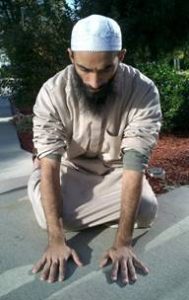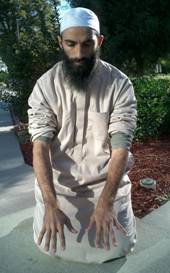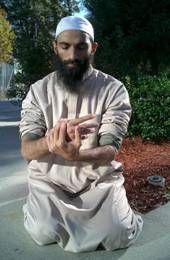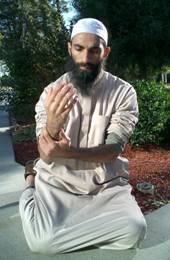| Ghusl (Bathing) |
| Ghusl is bathing the whole body with water. You must clean your body from any impurities, if any. Make the Niyyah (intention) in your heart that this act of Ghusl is for the purpose of preparing for Salah. It is recommended to make Ghusl in the following order: make Wudu, wash the head including the hair, wash the right side of your body from the shoulder to the foot three times, and finally wash the left side of the body. Ghusl is required for performing Salah in the following cases:
1. Janabah (major ritual impurities): The discharge of seminal secretions or sexual intercourse. 2. At the end of a menstrual period. 3. At the end of postpartum bleeding. |
|
Tayammum (Dry Ablution) |
| You may perform your Salah by preceding it with Tayammum as a substitute for Wudu or Ghusl when:
1. A person cannot find water, or the amount available is insufficient. 2. A person has no access to water. 3. A person is saving the water for later use. 4. A person is sick and cannot use water. 5. The use of water is likely to do harm, cause or worsen an illness, or delay the cure. 6. The performance of Wudu will cause the person to miss a funeral or Eid prayer that cannot be made up. |
| In any of these instances it is permissible to make Tayammum, which is performed as follows:
1. First, make Niyyah (intention) in your heart that this act of Tayammum is for the purpose of preparing for Salah, and say: “Bismillah.”
2. Strike both hands slightly on pure earth, sand, stone, or concrete.
|
| 3. Shake off hands to remove debris and wipe the whole face.
|
| 4. Repeat step #2 and wipe the right arm down to the elbow (or only to the wrist) with the left hand and the left arm down to the elbow (or only to the wrist) with the right hand.
|







